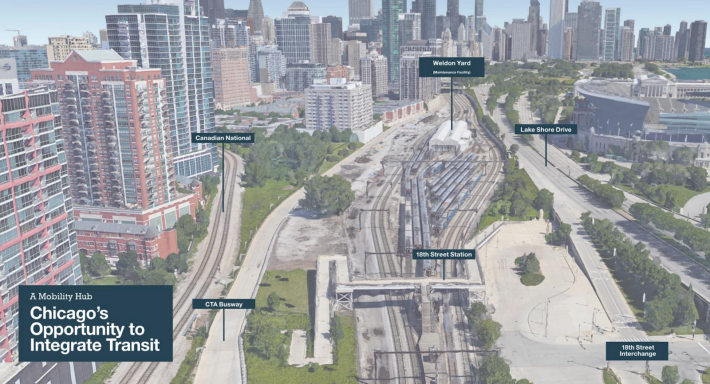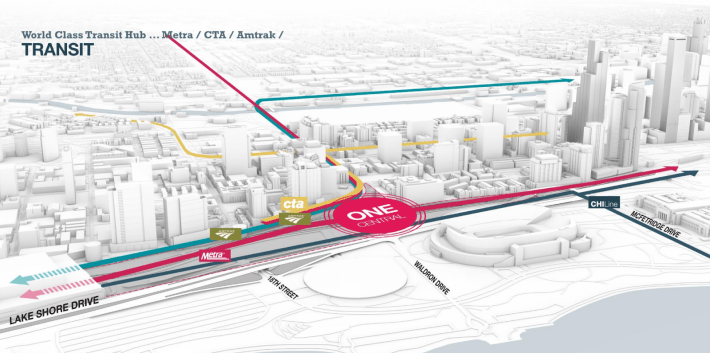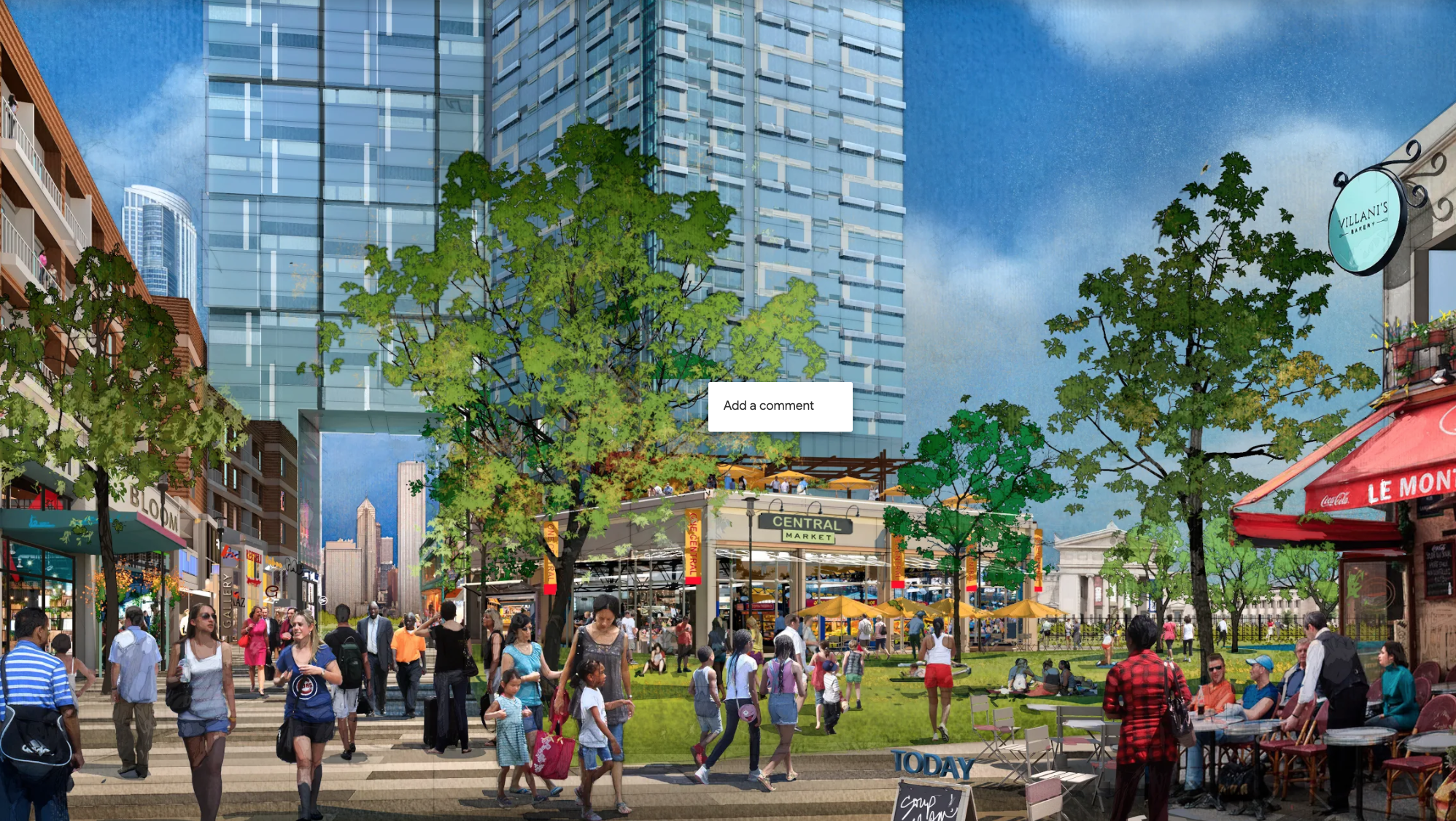As Streetsblog Chicago has previously discussed, the proposed One Central megadevelopment has the potential to improve downtown public transportation. A Wisconsin-based developer wants to build a series of skyscrapers, new parkland, and a major transit hub by capping a long stretch of Metra tracks west of Solider Field in the South Loop. The project would not only extend the density of downtown further south to McCormick Place, but the massive undertaking would help better connect attractions such as the football stadium / concert venue and the Museum Campus to Chicago’s existing transit network.
According to Landmark Development, the company behind the proposal, One Central would span a 31-acre site and create more than 15 acres of new public green space. The $20 billion plan, which is expected to take 15 years to complete, would build an enormous platform over the tracks, anchoring new towers, plazas, and the transit hub. Master planning was originally done by the global architecture firm Perkins + Will, which is also the lead designer and planner for the nearby Riverline and Southbank mega-developments along the Chicago River. The firm is no longer involved in One Central and Gensler Architects is now working on the project.

The proposed transit hub is supposed to bridge a rapid transit divide for the Near South Side, connecting residents and office workers to the CTA’s Orange Line as well as Metra and Amtrak service. A proposed “CHI-Line” circulator system would transport people “over Lake Shore Drive, around the Museum Campus, up to the parks, and to Navy Pier.” In many ways, the proposal would see a mass transit vision—connecting the Museum Campus to the rest of Chicago’s mass transit—that has been long desired and discussed for the area become a reality.
However, on Friday the fiscal conservatives over at the Chicago Tribune editorial board correctly pointed out that Landmark has yet to make a compelling argument for why their grand scheme deserves a massive subsidy from the state of Illinois, especial during COVID-19 when the state's financial outlook is particularly bleak. The developer hosted a public meeting in January to update residents on the proposal, which has neighbors worried about bringing additional car traffic to the area, as well as building heights for a project that could reach 89 stories.
"For us, it’s that transit hub that prompts a double-take, and has us worried about the burden it would put on state taxpayers," the Tribune writes, noting that Landmark is asking the Illinois Assembly for a $6.5 billion subsidy over 20 years for the hub, estimated to cost $3.8 billion, and other related infrastructure.
While the Tribune early on expressed interest in the One Central project, it argued on Friday, "Landmark still hasn’t been able to justify the need for the transit hub." The editorial board noted that after COVID-19 is just a bad memory, a higher percentage of the workforce may still be telecommuting, which could mean public transit ridership won't fully recover to pre-pandemic levels. Moreover, local transit agencies haven't expressed support for the project.

"If Landmark had some rock-solid rationale to devote a massive chunk of money from Illinois’ cash-starved coffers for a new South Loop transit hub, they would have come out with it," the Trib stated. "They haven’t because it isn’t there."
And the Pritzker administration has made it clear they don't see room in the state budget to help bankroll One Central anytime soon. “With the pandemic’s economic turmoil upending state budgets around the country, it would be a challenge for any state to provide the significant amount this developer is seeking,” the governor's spokesperson Emily Bittner told the Tribune.
The Tribune argued that Landmark needs to make an airtight case to the city and state for why One Central is worth a subsidy before the public coffers are opened. As yet, the developer hasn't done that.
More likely the transit hub is something that Landmark added to the project as an excuse to have Illinois pay for capping the Metra tracks to provide a platform for the development. Until the developer demonstrates that taxpayers would get a proportionate transit benefit from that $6.5 billion, Streetsblog Chicago agrees with the Trib that One Central's transit hub would be a bad investment of public funds.






